
Salty Sam’s Fun Blog for Children
Number 324
Dr Barnardo
Hello Everyone

Recently, l have told you the stories of two rogues from history, Dick Turpin and Jack Sheppard so l thought it was about time l told a story about a hero this week instead.
lt is hard to imagine now, that throughout many centuries if children had no parents, they had to look after themselves even at a really young age.
There were no social services organised by the government to look after these children. They had to steal just to eat and were very often considered as nothing but a nuisance by everyone else.
Sometimes churches would help poor children, but many of them were left to fend for themselves.
Thomas John Barnardo was born on 4th July, 1845 in Dublin, the capital city of lreland.
He was brought up in the Lutheran Faith.
When he was only sixteen years old, he decided that he wanted to become a medical missionary in China so he set off to London to train to be a doctor but never actually completed his course.
He saw the effects of disease and unemployment on the poor in London and decided he needed to do something about it.
He postponed his plans to go to China and instead opened a school in the East End of London in 1867 to care for and educate poor orphans.
Many had been left as orphans because of a recent cholera outbreak.
The school was called a Ragged School because it was specifically for poor people.
There is a famous story of how one of the boys at the school called Jim Jarvis took Barnardo around the streets one night to show him how the poor children lived. Without parents the children would also have no home.
Walking around the streets he could see how many children slept on the streets, in corners and on roofs, and decided that they didn’t just need a school for these children but a home as well.
And that is just what he did, in 1870 in Stepney, when he opened a home for boys.
The boys were not just taught reading and writing, but trades that would help to earn them a living in adulthood. They were taught subjects like carpentry and shoemaking. When they left school they would take up apprenticeships.
At first, the places were limited and one night an eleven year-old boy called John Somers, nick-named Carrots, was turned away because there was no room for him.
Two days later, Carrots was found dead.
From then on, Dr Barnardo vowed that no child should ever be turned away and put a sign outside the building that said, ‘No Destitute Child Ever Refused Admission’.
He realized that with this promise, he would need to provide more accommodation so he continued to buy properties in the East End. He knew how much shelters for destitute children were needed in more than one area.
Then he founded a Girls’ Village Home in Barkingside which was a collection of cottages. lt housed 1,500 girls. By 1900, there were 65 cottages on this 60 acre site; also a school, hospital and church.
ln 1873, he married Sara Louise Elmslie, who was known as Syrie. She shared his enthusiasm for social work. They settled in Essex and had seven children of their own, although three sadly died in childhood.
One of their children, Marjorie, was born with Down’s Syndrome and Barnardo dedicated himself to looking after her.
This spurred him on to open separate homes for children with learning difficulties. These children would need specialist care.
He never did fulfil his ambition to become a Doctor in China.
But over his lifetime, he continued to open institutions that helped care for poor children. He died in 1905 at the age of 60, and by that time his homes had cared for thousands of children in more than 90 different locations.
His work was continued by his supporters under the name of Dr Barnardo’s Homes but the last traditional orphanage was closed in 1989.
From then on, the charity, now called Barnardo’s, would focus on different ways of helping children who could use special help.
There is also a Ragged School Museum in the East End of London in a building used by Dr Barnardo to show us what a Ragged School looked like in Victorian times.
lt is amazing that one person could take it upon himself to get such a large network of institutions organized which would make a difference to so many people’s lives.
Bye bye everyone – don’t forget to subscribe to my blog!
lf you like my blog, please support it by telling all your friends and followers about it.
Thank you!
And see you again next Fun Friday!
Love and kisses
Salty Sam

www.christina-sinclair.com


Bill and Bob’s Joke of the Week![]()
![]()
Bob: A man walks into a doctor’s surgery and says, “So what is wrong with me doctor?”
Bill: So what did the doctor say?
Bob: He said, “l suspect you’ve got a virus.”
“What does that mean?” asked the man.
“lt means your guess is as good as mine,” replied the doctor.

Salty Sam © Christina Sinclair 2015
Unauthorized use and/or duplication of material from this blog without express and written permission from this blog’s author and owner is strictly prohibited.
Links may be used to www.christina-sinclair.com

Picture Gallery
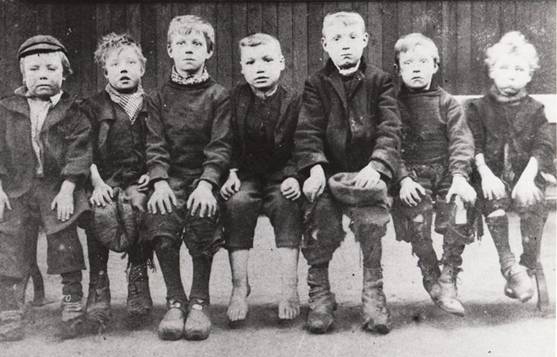
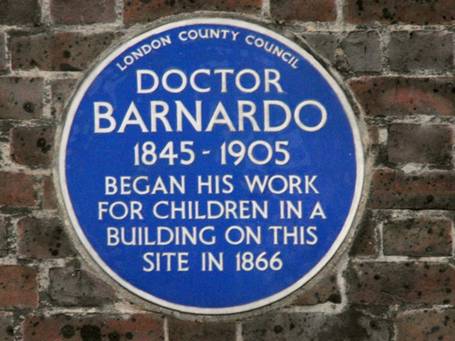 A blue plaque
A blue plaque
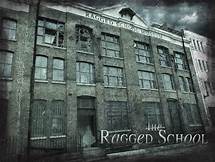


 THE SALTY SAM NEWS DESK
THE SALTY SAM NEWS DESK

After Miss Pringle told her class about borrowed words last week, she thought of a funny story she would tell them this week.
She explained to her class what a spoonerism was.
A spoonerism is when you make a mistake when you speak.
You swap the beginnings of two words over by accident.
Like saying closhing your woes instead of washing your clothes.
Sometimes when this happens it sounds really strange but sometimes it is really funny…
Like saying a well-boiled icicle instead of a well-oiled bicycle
Or the man had a cat flap on his head instead of a flat cap.
Or saying something like the singer sang bad salads.
Anyone can do it when they speak.
Spoonerisms are named after an Oxford don who apparently made this kind of mistake a lot.
His name was William Archibald Spooner and he lived from 1844 to 1930.
He had trouble with his eyesight and this often caused his problem. He was very kind, but often absent-minded. He was very intelligent and sometimes his tongue could not keep up with his brain.
He was quite a character.
The children enjoyed their lesson.
They have worked very hard just lately and needed a laugh.
In fact, they have not tasted this whole worm, I mean wasted this whole term.
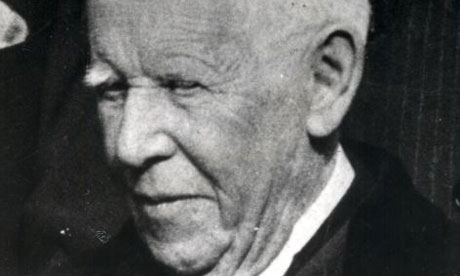

*********************
TO ADVERTISE ON THIS BLOG
PLEASE CONTACT:
christina.sinclair.ads@aol.co.uk
*********************


Quick Quiz
Who are these famous doctors?
- Travels through time and space and morphs from time to time
- Companion to Sherlock Holmes
- Known as the acid bath murderer
- Doctor Q _ _ _ _, Medicine Woman was a television series
- He made a monster-like creature out of the parts of dead bodies
- Said that he spoke to the animals




lt’s the Weekend!
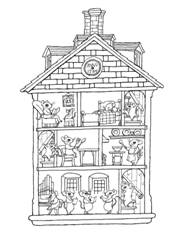
HOW TO MAKE A SUPER HERO FlNGER PUPPET
This super hero finger puppet has an ‘H’ for hero on his chest and a cape to help him fly.

HERO FINGER PUPPET BODY AND HEAD (KNIT ONE)
Using 4mm knitting needles and red dk yarn cast on 13 stitches
Purl 1 row
Purl 1 row
Knit 4 rows of stocking stitch
Change to green dk yarn
Knit 2 rows of stocking stitch
Change to white dk yarn
Knit 8 rows of stocking stitch
Change to pink dk yarn
Knit 4 rows of stocking stitch
Change to black dk yarn
Knit 6 rows of stocking stitch
Don’t cast off
Cut off the yarn leaving a length of about 20cm and thread this through the stitches on your needle and pull the knitting needle away
Embroider an ‘H’ onto the front of the white panel using Swiss darning before you make the puppet up.
Sew along the back seam using over-sew stitching and right sides together
Turn the super hero the right way out
Stuff the head
Secure a length of yarn into the back of the neck
Bind it tightly around the neck twice under the stuffing, secure and cut off excess
HERO FINGER PUPPET ARMS (KNIT ONE)
Using 4mm knitting needles and white dk yarn cast on 6 stitches
Knit 2 rows of stocking stitch
Change to green dk yarn
Knit 2 rows of stocking stitch
Change to pink dk yarn
Knit 2 rows of stocking stitch
Don’t cast off
Cut off the yarn leaving a length of about 10cm and thread this through the stitches on your needle and pull the knitting needle away
Sew along the under-arm seam using over-sew stitching and right sides together
Turn the arm the right way out and stuff with the left-over ends of yarn
Sew the arms on the side of the body pointing forwards so that your super hero can take off to fly into the air easily
HERO FINGER PUPPET CAPE (KNIT ONE)
Using 4mm knitting needles and purple dk yarn cast on 15 stitches
Knit 20 rows of garter stitch
Don’t cast off
Cut off the yarn leaving a length of about 20cm and thread this through the stitches on your needle and pull the knitting needle away
Then tie the cloak around the neck and secure the yarn
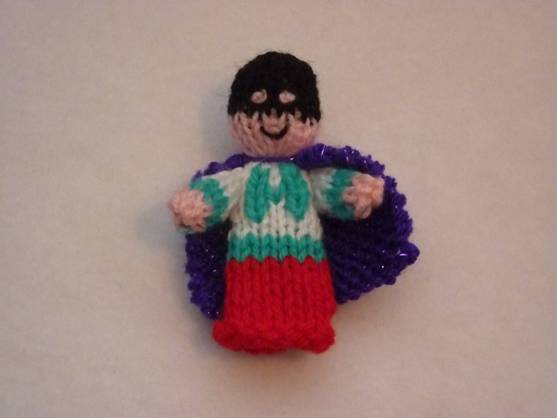
Please note that the material on this blog is for personal use and for use in classrooms only.
It is a copyright infringement and, therefore, illegal under international law to sell items made with these patterns.
Use of the toys and projects is at your own risk.
©Christina Sinclair Designs 2015


Quick Quiz Answers
- Dr Who
- Dr John Watson
- Dr Crippen
- Doctor Quinn was played by Jane Seymour
- Dr Victor Frankenstein
- Dr Dolittle
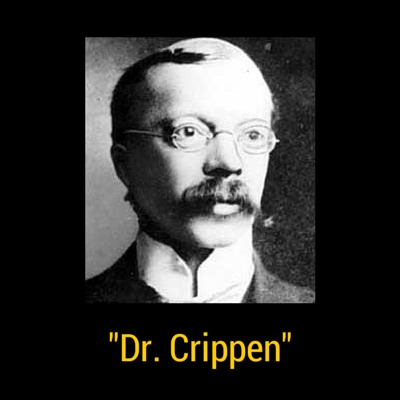


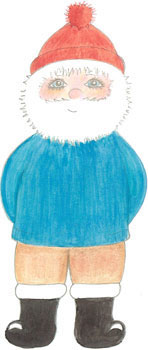
I like this post, enjoyed this one regards for posting.
l’m glad, thank you for comment.
Only wanna input on few general things, The website style is perfect, the articles is really wonderful : D.
Thank you so much!
Hello my friend! I wish to say that this post is awesome, nice written and come with approximately all vital infos. I would like to peer extra posts like this .
Thank you for your lovely comment. 🙂